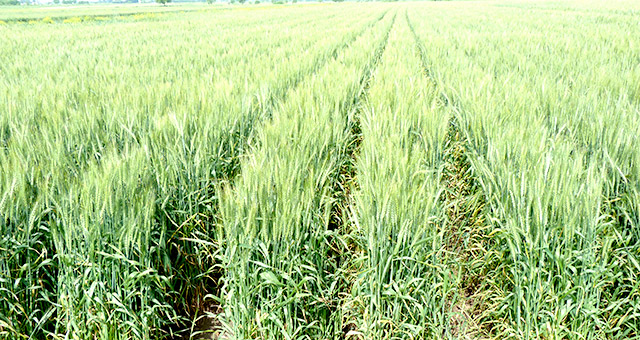
In recent years efforts to combat land degradation in Central Asia have received a new impetus. More and more is also being done to address climate change-related problems in the region. For the past two years, the five Central Asian countries have been working together under a project to streamline the use and creation of knowledge on sustainable land management (SLM). This initiative aims to improve knowledge on SLM practices in the region, and tailor this knowledge to the needs of local populations and authorities for practical use and the shaping of better informed policies.
Partners of the Knowledge Management Project of the Central Asian Countries Initiative for Land Management (CACILM, Phase II) convened for an annual planning meeting in Almaty, Kazakhstan, on 17-18 March 2015 to review the achievements and constraints of the project's second year and to plan activities for the third year (see here). The three-year project, implemented by the International Center for Agricultural Research in the Dry Areas (ICARDA) and supported by the International Fund for Agricultural Development (IFAD) since February 2013, aims to establish a platform to consolidate knowledge and promote sustainable land management approaches and technologies that have often been already devised by researchers in Kazakhstan, Kyrgyzstan, Tajikistan, Turkmenistan and Uzbekistan. More than 55 participants from government organizations, research institutes, NGOs, regional and international organizations, as well as farmers, met to discuss progress so far and what needs to be done yet.
"Farmers in the region face similar problems related to growing land degradation and climate change. The CACILM Knowledge Management Project aims to raise the awareness of farmers and other land users, as well as officials, about the new technologies and traditional methods that help to increase productivity and reduce costs in agriculture," Dr Akmal Akramkhanov, coordinator of the project, said. To date the project has gathered and systematized tens of SLM practices applicable to the four main agro-ecosystems of the region: rainfed, irrigated, mountains and rangelands. Most of them have been tested at demonstration sites in each of the five countries, he added.
"Degradation of lands because of their overuse, irrational use of water resources and overgrazing seriously affect crop productivity and people's well-being," Dr Jozef Turok, ICARDA's regional coordinator for Central Asia and the Caucasus, said. "The Knowledge Management Project will help to solve these challenges by uniting technologies and best practices in sustainable land management, and promoting conservation agriculture among farmers and decision-makers," he continued (see here).
Among these practices are zero and minimum tillage, raised-bed planting, use of improved crop varieties and intercropping practices, water-saving technologies, non-traditional fertilizers, rotational grazing in desert regions, agro-forestry melioration for rehabilitation of degraded irrigated lands and others.
"At present, 75 per cent of the land in Kazakhstan is prone to degradation and secondary desertification. A total of 44 per cent of our territory is dryland areas with minimum precipitation. Therefore, without the application of new technologies, it is difficult to obtain a high yield," Professor Abdulla Saparov, Director-General of the Kazakh Research Institute of Soil Science and Agrochemistry, said. He also said that promotion and implementation of new technologies contributes to maintaining soil fertility and increasing crop yields, which will improve farmers' incomes and living conditions in rural areas as a result.
As a partnership between the Central Asian countries, international donor and research-for-development organizations, this project underlines how collaboration can make a difference. The initiative also supports the region in implementing the UN Convention to Combat Desertification (see here). The ultimate goal is, however, to ensure that there is more food without much cost to the environment and rural populations.